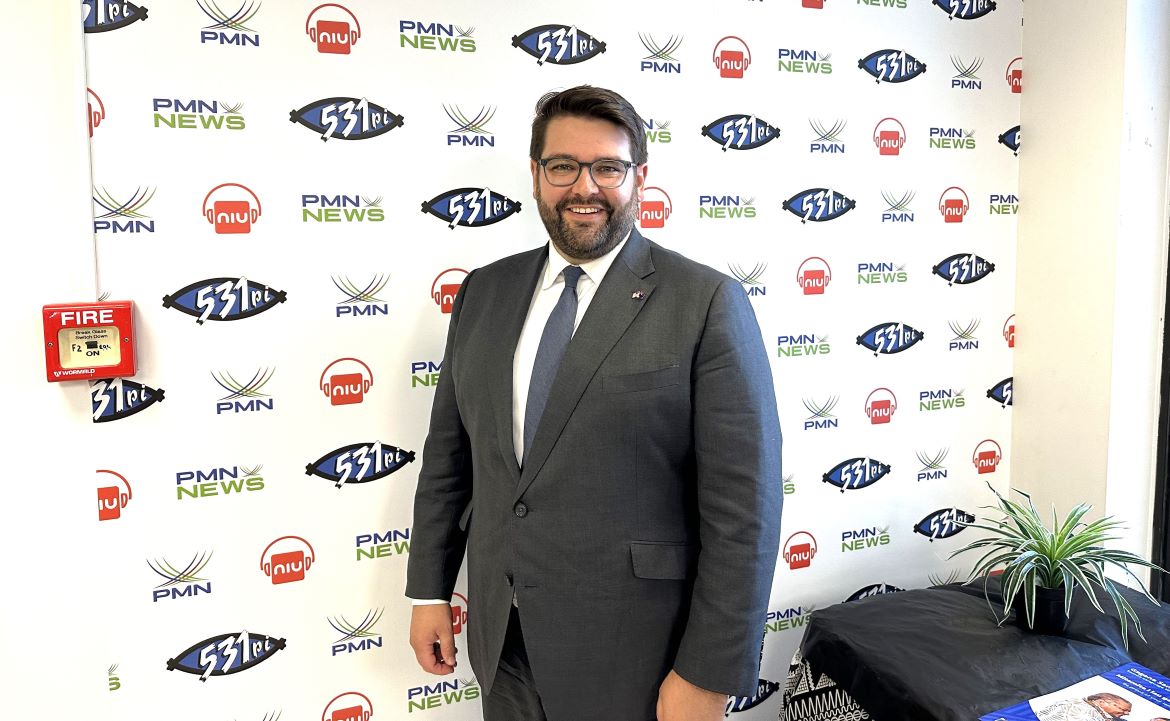The United States of America is upping its investment in media freedom in the Pacific.
And to underline the U.S commitment to preserving democratic institutions, assistant secretary of state Bill Russo recently visited newsrooms throughout the Pacific to understand how to better support journalists across the region.
Russo, who’s in the state department’s bureau of global affairs says that having previously worked as the deputy communications director for press during the Biden-Harris presidential campaign, he’s well-placed to understand how stable democracy can be undermined, given how his nation’s 2020 elections were plagued by disinformation.
“When you think of the foundation of free and open societies all around the world, free media and freedom of expression is one of the most important pieces to that,” he said.
Russo said prior to coming to New Zealand, he met with journalists in Fiji who have taken part in trainings organised by the U.S embassy.
Since [the repeal of Fiji’s restrictive media] laws were passed, journalists and media in Fiji have had more freedom to report,” he said.
“Our embassy in Suva has brought in a journalism professor from Chicago who did a training session on the cutting edge digital media environment and following that, two FBC [Fijian Broadcasting Corporation] reporters were able to travel to Idaho and Illinois to meet with American journalists and see what some best practices look like.
“So whether it’s training, whether it’s exchanges, or whether it’s creating reporting opportunities in the United States, there’s a lot the United States can and wants to do – not just for Fiji but throughout the region.”
Another challenge to democracy in the Pacific is the power of social media platforms to quickly disseminate disinformation. But Russo says the key to combating this isn’t through controlling what platforms can be accessed.
“We’ve had some incredible conversations about misinformation and the word that kept coming up time and time again is trust,” he said.
“And we need to make sure we are finding ways to not only sustain trust, but where trust has been lost in institutions and governments, including in media, we have to have a certain level of humility to find ways to rebuild that trust and I think this investment we’re trying to make into journalism is one of the most important things we can do.”
Another way the state department has been supporting the Pacific is through its Young Pacific Leaders programme, where young people aged between 20-35 have given the financial means to run initiatives in their local communities. Russo recently met with a group who had just completed their projects and he says it was inspiring seeing how these young leaders were maximising the U.S’ investment.
“It was just incredible to listen to the stories of the things they were doing all across the Pacific, with the small grants we provided, in terms of building libraries in primary schools, building ecommerce platforms for people to sell their goods, to finding ways to get single mother economic opportunities.
“It was really remarkable to see the connections we’ve been able to forge and having such an incredible multiplier effect within their countries around the region.”
Russo said this ongoing engagement comes down to the U.S’ long history in the region and he hopes the benefits will be felt for many years to come.
“There’s a shared history going back decades, to the second world war and even further and there’s also a realisation and understanding that our partners in the region want to see more sustained investment.
“So what we’re trying to do is open new embassies, invest more money in climate financing and we’re trying to invest in the next few decades.
“We have a shared history and we want to make sure we’re investing in a shared future.” he said.
SOURCE: PMN/PACNEWS














